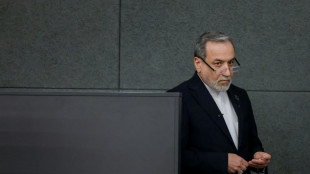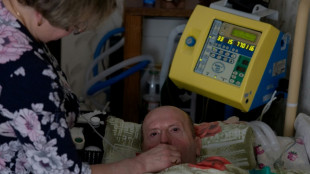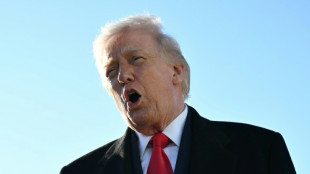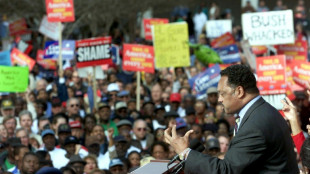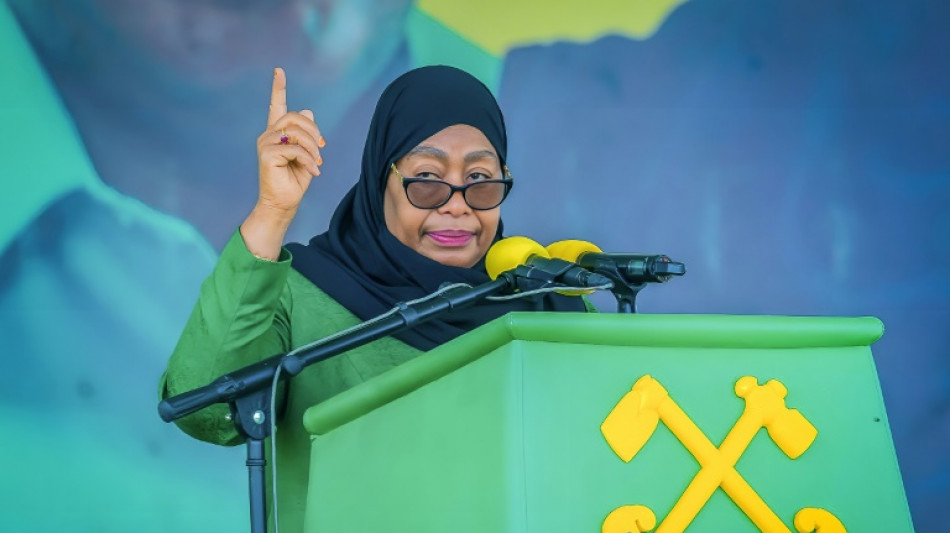
Tanzania politicians in shock as cabal takes over after massacre

Tanzanian politicians are in shock over the massacre of hundreds of young protesters during its recent election, insiders told AFP, but are too afraid to speak out as a tiny cabal of hardliners around the president takes control.
Gruesome images of dead Tanzanians have flooded the internet in the wake of the October 29 elections that triggered widespread protests over government repression.
President Samia Suluhu Hassan officially won with 98 percent of the vote, but key opposition leaders were jailed or disqualified.
The opposition says more than 1,000 were killed as security forces crushed the protests under cover of a five-day internet blackout.
Two weeks on, the government has yet to give any casualty numbers.
"There are... disturbing reports that security forces have been seen removing bodies from streets and hospitals and taking them to undisclosed locations in an apparent attempt to conceal evidence," UN Human Rights Chief Volker Turk said on Tuesday.
A senior official in the Tanzanian government who said they were horrified by the events of the past fortnight, agreed to talk to AFP.
The official said they would end up dead if their name was published, but provided AFP with coordinates for two suspected sites of mass graves near Dar es Salaam -- at Kondo and Mabwepande. But these could not be independently verified.
AFP was not in a position to independently verify the sites, at Kondo and Mabwepande.
- A tiny cabal -
A tiny cabal around President Hassan now has total control over the levers of power and repression in the east African country, said both the official and a former presidential advisor, who also spoke on condition of anonymity.
"People in the government are in shock... there's disbelief," said the official.
"Nobody has the guts to talk... that's the sad part of it. But people do whisper," they said.
AFP has spoken to multiple eye-witnesses who describe seeing people shot at point-blank range by police and unidentified armed men.
One described a bystander shot in the head by a soldier in Dar es Salaam on election day. The next day he saw three people lined up and shot "five or six times" in the legs by police.
The opposition has called fresh protests for independence day on December 9.
"We really don't know what to do," said the government official. "Do we want more demos? No, because the youth are going to be executed again."
- The 'cabal' -
The group around the president includes her son Abdul Halim Hafidh Ameir; her private secretary Waziri Salum; head of the intelligence service Suleiman Abubakar Mombo; and a little-known member of the East African parliament, Angela Kizigha, according to the two government sources.
"There's a very, very tiny cabal who is informing and influencing the president and running the country," said the former presidential advisor.
"It's unprecedented and very un-Tanzanian," they added. Everyone else "has been completely frozen out".
The violence began more than a year before the elections, with critics attacked, kidnapped and murdered.
Hassan's son, Abdul, has "a private militia and most of the people believe that's the one involved in the abductions from the beginning", said the official.
The government has denied responsibility for abductions. Spokespeople did not respond to AFP requests for comment for this article.
Prior to the election, the Tanganyika Law Society had confirmed 83 abductions under Hassan's rule, but said reported disappearances increased significantly in the final days of the campaign.
Some were high-profile, like former government spokesman and ambassador Humphrey Polepole, reported missing from his blood-stained home on October 6 after resigning in a letter that criticised Hassan's government.
Others were unknown individuals in small villages, seemingly targeted for minor online posts.
"Why are you abducting a 20-year-old kid just because they criticised you? You're the president, for crying out loud!" said the government official.
- 'Deep-seated paranoia' -
Hassan inherited the presidency on the sudden death of authoritarian president John Magufuli in 2021.
She faced strong opposition from within the party, but was feted for easing restrictions on the opposition and media.
That opening proved short-lived, however, as repression returned worse than ever in 2024.
"The only explanation is deep-seated paranoia... and now it's out of control," said the ex-advisor.
Those with power "know one tool... a very brutal, crude, authoritarian tool".
Members of parliament talk constantly about the killings, said the official, but are paralysed by fear of the security services, and also terrified of facing their constituents in the future.
"What's clear is that Tanzania will never be the same again," they said.
L.Lefevre--PS

 London
London

 Manchester
Manchester
 Glasgow
Glasgow
 Dublin
Dublin
 Belfast
Belfast
 Washington
Washington
 Denver
Denver
 Atlanta
Atlanta
 Dallas
Dallas
 Houston Texas
Houston Texas
 New Orleans
New Orleans
 El Paso
El Paso
 Phoenix
Phoenix
 Los Angeles
Los Angeles
